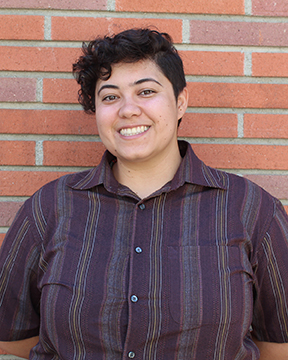The Associated Students of Cerritos College approved $5,000 for NASA Community College Aerospace Scholars on May 8, which will allow for non-citizen students the opportunity to apply to a program otherwise funded for U.S. citizens.
Department chair of physics, astronomy and engineering Janet McLarty-Schroeder said she first had to find out if it was possible for non-citizens to participate in NCAS program offsite from NASA facilities. She said the pilot program is a collaboration between NASA, NCAS and Cerritos College to offer the NCAS program offsite.
The difference is that non-citizens, which McLarty-Schroeder said includes legal permanent residents, international students and Deferred Action for Childhood Arrivals recipients, would apply through Cerritos College and the college would be responsible for the associated costs.
In past experiences, she said some aerospace companies did require background screenings, but said there are plenty of places that do not.
“For background screening purposes, it seems to be a problem for AB-540 [students],” McLarty-Schroeder emphasized, “That’s okay, we can find other places that will give tours to non-citizens… but we have to be able to show up front that we have the money to cover everything they need to the same level as a citizen.”
Lodging and food for the onsite visit add up to about $500 per student.
The $9,500 granted by ASCC will cover equipment, lodging and food for 10 non-citizens and some of the lodging for citizens.
With the funds approved by ASCC for the fiscal year, only 10 non-citizen students will be able to participate in the onsite visit, as funds are still needed for instructional equipment–including the online course students must complete, giving them a chance to make it to the onsite location.
So far, 19 non-citizen students have expressed interest in the program, leaving McLarty-Schroeder questioning how to decide which students are the most determined.
She said she wants to determine if there are enough funds for the 19 students to take the online course and then select top performers for the onsite visit.
“I don’t want it to be any different than the citizens because there’s no GPA requirement,” she said, “Who is going to stick with it and not give up when things get bad? Those are the hardest things to tell.”
Micah Pratt, a mechanical engineer major and recent participant of NCAS, recommends that applicants “really commit” to the course, seeing it as “committing to your own future.”
Pratt made it to the on-site location at Johnson Space Center and was also able to intern at NASA Ames Research Center in Palo Alto, doing work based on artificial intelligence.
Although the research strayed from his major, Pratt said, “I feel like NCAS kind of prepared me for that, too, because when you get there, you’re not doing things that are strictly necessarily related to things you’ve done before.”
Pratt said he was glad to hear McLarty-Schroeder and Carlos Mera, physics professor, were able to get funds from ASCC to support non-citizen students interested in the program.
“There’s no reason why anybody should be excluded from being able to really gain the full benefit of participating in the project,” Pratt expressed.
Mera also expressed his appreciation to ASCC and thanked the students for the opportunity.
McLarty-Schroeder is excited for the next on-site location, wanting to keep it a surprise for applicants.
The deadline for citizen applications is May 15, but non-citizens will be contacted separately on their process and deadline. Those who are interested are encouraged to contact McLarty-Schroeder.









